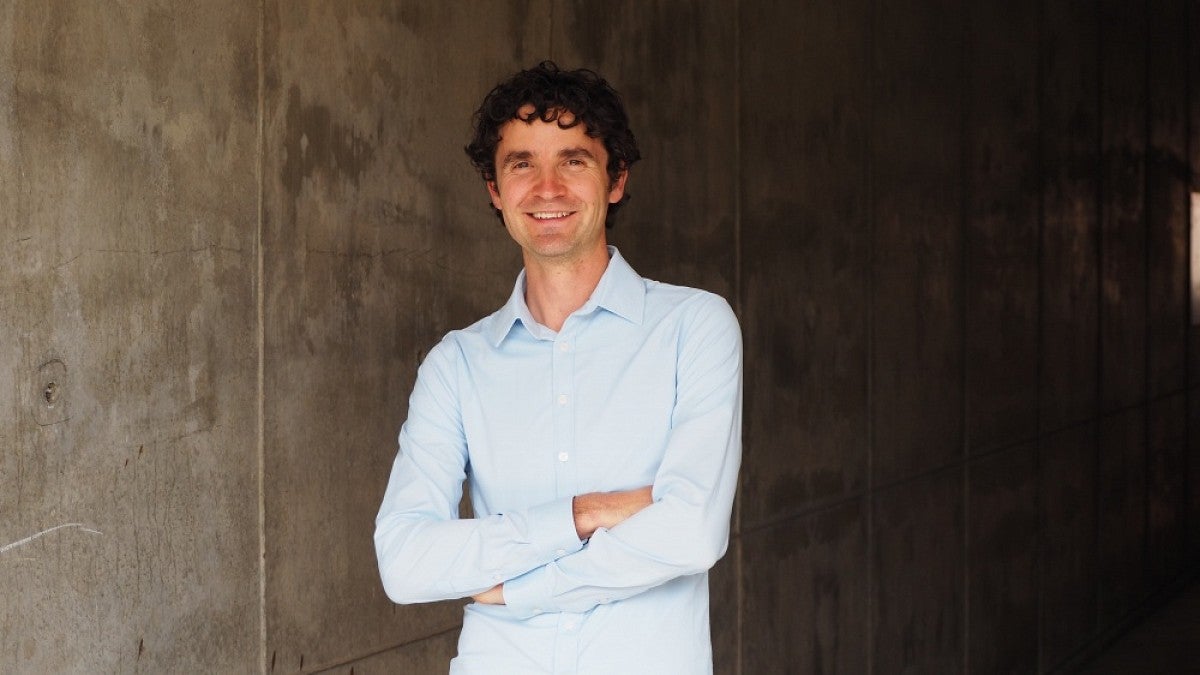The newest faculty hire at the Phil and Penny Knight Campus for Accelerating Scientific Impact is an early career researcher known for blending biology with physical sciences and engineering with an eye toward medical breakthroughs.
Calin Plesa, currently a Burroughs Wellcome CASI postdoctoral fellow at the University of California, Los Angeles, will start at the Knight Campus in July. Plesa’s research interests lie at the intersection of protein engineering, biochemistry, microbiology, synthetic biology, genetics and technology.
“It’s rare to come across a post-doc as accomplished and talented as Calin,” said Robert Guldberg, vice president and Robert and Leona DeArmond Executive Director of the Knight Campus. “His talents and areas of focus align really well with the overall direction of the Knight Campus. We’re thrilled to welcome him. He brings amazing potential and talent to the University of Oregon.”
Plesa’s addition marks the fourth faculty hire at the Knight Campus this spring. The first three faculty hires were announced May 6.
Currently, Plesa’s work primarily focuses on large-scale gene synthesis, which plays an important role in functional characterization of DNA sequences and in the development of synthetic biology. Current efforts in these areas are hampered by the high costs of gene synthesis.
Plesa developed a method called DropSynth, which allows the generation of large libraries of thousands of genes at relatively low cost. This approach opens many new avenues of research and potential applications previously deemed too expensive. Last year he received a Career Awards at the Scientific Interface grant from the Burroughs Wellcome Fund to apply these techniques to the protein engineering of biosensors.
Before joining UCLA as a postdoctoral fellow in 2015, he earned a doctorate in bionanoscience in 2015 from Delft University of Technology. He received master’s degrees in nanoscience and nanotechnology from Delft in 2009 and Chalmers University of Technology in 2010. He received a bachelor’s of applied science, engineering physics in 2007 from Simon Fraser University.
“The University of Oregon has so many amazing opportunities to establish collaborations with existing faculty,” Plesa said. “Teams like this can make big leaps very quickly. I’m looking forward to making new discoveries with applications that positively impact human health. I am honored to join this research community.”


